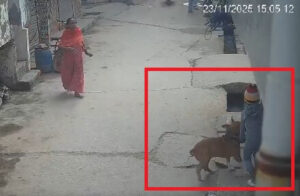Tibetan leader cautions India against China

Dharamsala, Jan 11 : Tibetan “Prime Minister-in-exile” Lobsang Sangay on Thursday cautioned New Delhi against China’s deceptive policies, warning that what happened to Tibet could happen to India as well.
“The Doklam stand-off and the repeated cross-border incursion of Chinese soldiers into Indian territories is a sign of China’s expansionist mindset,” he told reporters here.
He said India should be wary of China’s belligerent attitude.
Taking about developing airfields and road networks by China along the border with India, he asked India to be cautious.
“To understand the Doklam face-off, you have to look at China’s ‘right hand palm and five fingers’ strategy.
“Chinese leader Mao Zedong described Tibet as the right hand palm while Ladakh, Sikkim, Bhutan, Nepal and Arunachal Pradesh as five fingers.
“Because the Chinese were not stopped when they were occupying Tibet in 1959, they have now got emboldened to move towards five fingers. Had Tibet’s capture been prevented, incidents like Doklam would never took place,” Sangay told IANS.
Sangay, who is also the Central Tibetan Administration (CTA) President, said India was now progressing towards becoming “a number one country” under the leadership Prime Minister Narendra Modi.
Stressing upon the need to develop a Buddhist religious tourist circuit, he said India was the land of Buddha and there were 600-700 million Buddhists in the world.
“Even if only .01 per cent Buddhists come to India to visit Buddhist monasteries and spend am average $1,000, India can earn $6 billion per year,” said Sangay.
The Central Tibetan Administration is based in this Himachal Pradesh town where the spiritual leader the Dalai Lama also resides.
Sangay highlighted the Dalai Lama’s commitment to the revival of ancient Indian values, particularly the Nalanda school of thought.
The Dalai Lama has lived in India since fleeing China in 1959 after a failed uprising against Communist rule over Tibet. The government-in-exile is based in Dharamsala but is not recognized by any country.
IANS





